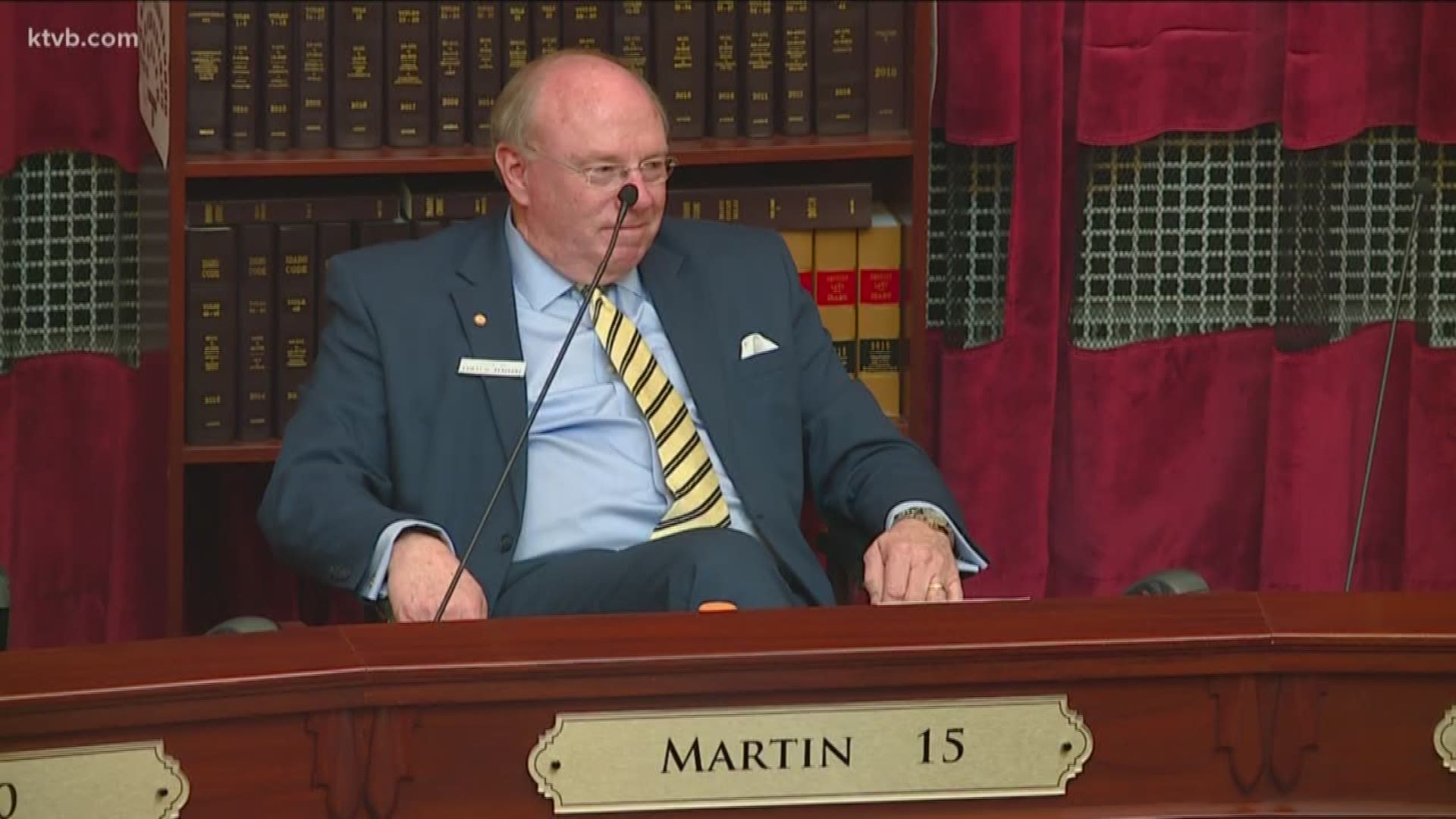BOISE, Idaho — The state Senate on Tuesday approved legislation adding work requirements to Idaho's voter-approved Medicaid expansion law.
The chamber voted 20-15 to send the legislation to the House. A similar bill from that chamber died last week in a Senate committee.
The current bill is an attempt to reach a compromise that can win the approval of Republican Gov. Brad Little. It wouldn't kick people off Medicaid, as the House bill called for, if they don't fulfill the work requirements.
"This bill does not drop anyone off of Medicaid expansion," Republican Sen. Mary Souza told fellow lawmakers. "At no time will they lose their coverage."
Voters authorized Medicaid expansion in an initiative in November with 61% of the vote after years of inaction by the Legislature.
The expansion will provide access to preventative health care services for an estimated 91,000 low-income residents. The federal government would cover 90% of the estimated $400 million cost.
The Senate previously passed an appropriations bill paying for Medicaid expansion as approved by voters with no work requirements. Little has included $20 million for the expansion in his budget.
RELATED: Senate committee kills Idaho Medicaid expansion bill that would have required recipients to work
However, the House has refused to vote on the appropriations bill. Instead, it passed a measure with penalties that would kick people off Medicaid after 60 days if they didn't meet work requirements.
The Senate bill requires able-bodied Medicaid recipients who fail to meet the work requirements to make a copay when seeking medical services, but it does not kick them off Medicaid. The number of people who might fall under the work requirement is estimated at 12,000.
Republican Sen. Jim Rice defended the provision.
"If you're really, really available and able-bodied, get a job or help pay for it," he said. "Don't just freeload on your neighbors."
The bill would also seek a waiver from the federal government to allow people earning 100 to138 percent of the federal poverty level to stay on the state's health insurance exchange rather than go on Medicaid if they choose.
Caroline Merritt with Close the Gap Idaho said these requirements are not what voters passed in November.
"Not every Idahoan fits neatly into a government box,” she said. “Medicaid was never designed to be a work program. Medicaid is a program to furnish medical assistance in the form of heatlhcare coverage to those who qualify.”
Merritt said those in the gap were excited when Prop 2 passed and are now concerned about what these changes will mean for their coverage.
“Many in this population haven’t seen a doctor in years," she said. "This will be their first visit to a primary care physician in years and so they’re excited for this opportunity. But all of the debate and everything going on in the legislature is very concerning to them, so at the end of the day they’re just hoping they still have the healthcare coverage that voters provided them.”
Backers of the legislation say the work requirement and the insurance waiver could save the state several million dollars.
Democratic Sen. Maryanne Jordan said administering the work requirements as well as other aspects of the legislation will "take more money out of the general fund on a yearly basis" than the law without work requirements approved by voters.
Last week, a federal judge in Washington blocked Medicaid work requirements in Arkansas and Kentucky.
"We should expect to entangle ourselves in the same type of lawsuit," Merritt said. "Idaho really has an opportunity here to learn from the states that came before us and enact a clean Medicaid expansion.”
The judge ruled that the requirement for low-income people posed numerous obstacles to getting health care that hadn't been adequately resolved by federal and state officials.
That ruling appeared to play a part in sinking the House's Medicaid expansion bill. Some senators on Tuesday argued that the Senate version of Medicaid expansion also runs afoul of that ruling.
Also on Tuesday, the Senate State Affairs committee held a hearing on House Bill 296, which is a trailer bill that would tweak some possible changes to voter initiatives. The trailer bill would keep the ten percent voter signature requirement but would allow nine months instead of six to gather those signatures. HB 296 would also only require the signatures come from two-thirds, or about 23, of Idaho's 35 legislative districts instead of the proposed 32.
The bill passed out of committee with a "do pass" recommendation and now heads to the Senate floor. It has already passed the House so if it gets majority vote on the Senate floor, it would then head to the governor's desk for Gov. Little to either sign or veto it.

